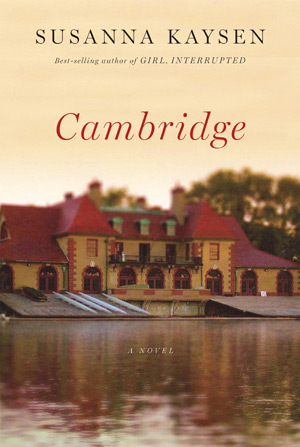Fuse News: “Cambridge: A Novel” — A Vision of a City and a Childhood
By Harvey Blume
What a delightful and moving book is Susanna Kaysen’s Cambridge: A Novel (Knopf, 272 pages, $25.95). Kaysen is the author of Girl, Interrupted (1993), the bestselling memoir of her stay in a psychiatric ward at Macleans that was made into the film starring Winona Ryder as teenaged Susanna. Cambridge is Kaysen’s account of girlhood prior to that particular interruption. This is not to say the tale is interruption free. Far from — the narrator is if anything interruptus prone, primed for breaks and fissures occasioned by her irreducible and almost completely non-negotiable likes and dislikes.
Here, for example, is Susanna deciding where the splendid musical education being lavished on her by a soon to be celebrated conductor must come to a end: “I couldn’t read [music] worth a damn,” she writes. “I never got the note names straight. And, having decided that the bass clef was sinister, I refused to learn it. ”
The bass clef takes many forms in this book; there’s no lack of sinister. Sometimes the bass clef merges into the persona of the narrator. For example, she writes that when she and her family return, after a year abroad, to the familiar settings of hometown Cambridge for which she acutely longed all the while, she finds that it isn’t the Cambridge she longed for and/or she is just not the same girl. “I felt chipped, lidless and broken. Maybe I would go stand at the curb on Monday morning and wait for the maw of the garbage truck to eat me up.”
Much of Cambridge occurs outside that city, in the locales of England, Italy and Greece. Susanna’s father, Karl Kaysen, is portrayed as the Harvard professor of economics he in fact was, with a vocation that often took the family far afield. In fact, though no mention is made of it, Karl Kaysen served for a time as director of the Institute for Advanced Study at Princeton, a roost for the likes of Albert Einstein and Kurt Gödel. Those two don’t appear in the novel but others of high mettle do. The Cambridge of this book — including streets young Susanna loves to bike around — is one many readers will know little of. It’s an utterly patrician Cambridge, as is duly noted in the book, which does not, therefore, allow much guilt on that account.
Perhaps the narrator suffers on too many other fronts to be especially troubled about guilt. For example, of her family’s sojourn in Greece, she writes,
As usual, my parents were having a lot more fun than I was. They loved to meet new people and try unfamiliar foods and dash from place to place seeing sights. . . . I wanted to stay home and read, and if I had to go out. I wanted to something I’d already done, something predictable. It was if they were the children, excited by all the new things, and I as that adult, anxious and stuck in my ways.
The narrator of this book is not always likeable or sympathetic. She skulks, sulks, dodges and judges. She’s secretive and hides, especially from her mother, who has the knack of intuiting precisely the thoughts and feelings her daughter wants to keep private: “I need to figure out how to thwart my mother’s trick of knowing what I was thinking,” she writes. “I had to learn to think things she couldn’t detect.”
The young narrator has her own gift for detection. Here is what, to her mind, the Greek myths and Bible stories she’s reading have in common: “They were violent and arbitrary, and they didn’t explain. There was something naked about these stories. Terrible things happened, and then some more terrible things.”
Cambridge is billed as a novel, which means the author has given herself license to embellish. But the delights of the book do not arise from embellishment. Cambridge is a superbly recollected and recounted memoir of childhood, the pleasures along with the tremors and doubts. The book may bring back your own childhood, and, with it, memories of place — for Kaysen, a certain Cambridge — for which you have no less poignant feelings.
Harvey Blume is an author — Ota Benga: The Pygmy At The Zoo — who has published essays, reviews, and interviews widely, in The New York Times, Boston Globe, Agni, The American Prospect, and The Forward, among other venues. His blog in progress, which will archive that material and be a platform for new, is here. He contributes regularly to The Arts Fuse and wants to help it continue to grow into a critical voice to be reckoned with.


